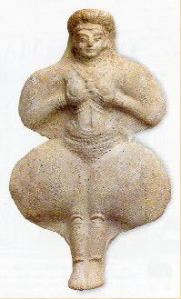Rosa Rubicondior: So I’ve Written This Book….
At last!
In response to numerous requests, Rosa Rubicondior has finally produced an ebook, based on a selection of her Atheism and Science blogs. The inspiring title is “The Light Of Reason: And Other Atheist Writing”.
I’m darn sure this ebook will enlighten many atheists’s lives.
The articles are arranged into four sections, each dealing with a different aspect of Atheism and science and the interface between science and religion.
Those sections are:
#1: Religion and Atheism, which looks at the reasons why Atheism is the position of choice for critical thinkers and people who allow the evidence to determine their beliefs and who suspend judgement in the absence of evidence.
#2: Evolution and Other Science, which deals with aspects of science which normally feature in creationist and other religious apologetics and about which most creationists are ignorant or at least feign ignorance.
#3: Religious Apologetics, dealing with the common apologetic fallacies (and believe me, there are plenty of them to be ridiculed.
#4: Silly Bible, exposing the utter nonsense and implausibility of the stories found throughout the Bible.
I guess section #4 will become my personal favorite part of Rosa’s ebook since the Bible (a.k.a. the Holy Scripture) is really a silly book, with lots of even more stupid narratives – like the talking (and maybe lisping) and upright walking Serpent in the Garden of Eden.
Hey, hold the horses! Wait a sec. An upright walking Snake? Yes, obviously it must have been that way; i.e. after the Fall God seemingly felt revengeful (although what happened in the Garden of Eden couldn’t have come as a surprise to Him) and therefore commanded all snakes from now on to become crawling reptiles on the ground. Otherwise it’s very hard to understand and accept what can be read in Genesis 3:14: And the LORD God said to the serpent, Because you have done this, you are cursed above all cattle, and above every beast of the field; on your belly shall you go, and dust shall you eat all the days of your life:”
(Hence, before that the snakes weren’t crawling on the ground.)
Back now to Rosa’s ebook. There is no plot to follow in it, so so the table of contents each article can be read independently of the others.
Click the link above to get more information about Rosa Rubicondior’s ebook.
The Kindle version of Rosa’s ebook consists of 747 (!) pages, so you’ll get a lot of knowledge for a small amount of money. Don’t hesitate to buy it. I bet your atheist life will be much funnier to live afterwards, because Rosa Rubicondior is an unusually “divinely” gifted writer.

 The Science of the Soul
The Science of the Soul I confess. I once spent a couple of years as an absolute NDE junkie. In my early search for evidence of the soul, NDE survivors seemed to have the proof I was searching for. I read everything I could get my hands on; I was hooked by all the similar and compelling stories… at least for a while.
I confess. I once spent a couple of years as an absolute NDE junkie. In my early search for evidence of the soul, NDE survivors seemed to have the proof I was searching for. I read everything I could get my hands on; I was hooked by all the similar and compelling stories… at least for a while.


